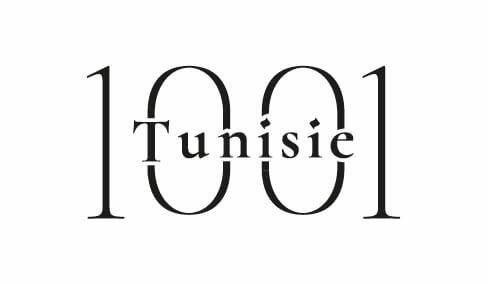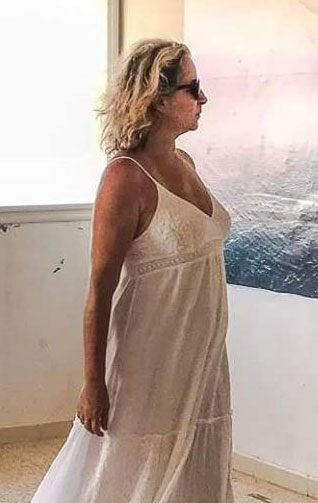
It is thanks to a program on Sustainable Tourism, carried by La GIZ in Tunisia through the Fond Emploi program, that Sandra Rochwski, boss of the German label GreenSign http://www.infracert.de makes an evaluation visit of some Tunisian accommodation structures as diverse as guest houses, apart hotels and beach hotels. The trip is an opportunity to learn more about this new label that is set up in Tunisia. Interview led by Amel DJAIT
1001Tunisie: Introduce to us GreenSign. What are its objectives ? When was this label born?
Sandra Rochwski: Greensign is a new German brand, born 4 years ago on the German market and which is beginning to internationalize on Austria, Switzerland, Poland, the Netherlands, …
Today, our label after having proved itself at the national level on small structures is joined by international hotel chains. Many hotels are joining our GreenSign Hotels network already made up of more than 100 hotels.
What are the particularities of the Greensign label?
We have a system of 5 levels of certification, from the simplest to the most complex. Our strength is the accompaniment. Often, we are in front of structures that want to engage without knowing where to start. It is then that we propose our “Full Process” which knows how to take into consideration all the parameters (energy, identity, security, CSR, …). We also provide real advice to our partners.
What do you have that other labels do not have?
We present a very developed marketing support. We help and support our customers to attract customers.
Is sustainability an accelerator or facilitator for business?
Absolutely. You know, labeling in people’s heads is synonymous with quality. Today, you have customers who are significantly more sensitive to sustainability. On vacation, they have more time to pay attention to water management and want to know how their trip is good for local people.
What is the image of Tunisia in Germany today?
It’s a good image. People came at a certain time to Tunisia and in mass. Many keep whether or not we want a good image of the country and the holidays they spent there. There is really a generation that has lived to the rhythm of holidays in Tunisia.
Today, the challenge is to seduce and convince again. We must find new travel motivations for a new clientele that has changed, who does not know Tunisia and who does not know what is going on there.
The question is also and especially how to attract the individual tourist (FIT) and the one who seeks products other than the sea? Because, even the tourist “Beach” has also changed his behavior. He moves away from the tour operators, wants excursions, rent his own car, go to the discovery, …

Is sustainability an opportunity for Tunisian tourism?
Absolutely. Because it goes with the quality especially for the hotel offer. With sustainability, the hospitality industry is committed and puts more quality. The whole value chain becomes more human.
What are your hopes for the Tunisian market? Do you expect to find customers for your label?
It seems obvious to me! We bring solutions and a market! But the most urgent is to develop a concept to position Tunisia for individuals (FIT) in the next 3 years. This is the real challenge! We will have to look for customers who are interested in cultural tourism, move away from mass tourism, bring more authenticity to travel, etc.
Who is today’s German customer? What are his expectations?
Today’s German tourist travels 3 to 4 times a year. He takes a trip to relax, discover and go shopping. He wants to live experiences and does not want to stay just by the sea on a deckchair. He is also more active and engaged. He wants to meet people and really learn, have fun and communicate during his travels
.

Can we say that the time of Tunisian customers is over?
No ! The Tunisian offer remains suitable for families who need hotels not far away, good value for money and which has the attractions you know well: activities, care of children, leisure, beautiful hotel unit. ..
Young people, who are a segment that moves much more easily, they want to travel in individuals, to be with friends and at their own pace with completely different motivations. Certainly, they want the sea but also want to be autonomous, with the possibility to rent a car, discover the destinations they choose and do dives.
You have visited Toumana Garden in Djerba, Villa Sounine in Sounine and Hotel Menera in Hammamet. Where are they in terms of commitments? Can they be labeled?
There is great potential for that. At the level of the structures I visited, there is a real awareness and commitment. Each of the structures is strong on a point such as the respect and working conditions of the staff, the cultural identity of the place, the water management and the solar energy put in place, the purchase of fresh food at the local level ….
So many positive points that must be valued. When a hotel has its own garden, it must be valued. I think of Djerba who has a strong identity. Operators and stakeholders would benefit from working together and GreenDjerba is a promising project. Hammamet is also working on a destination labeling project. In short, there are many projects and that’s good!
How much does a certification cost?
It takes 1000 euros / year but it includes all that we, as Greensign, put in: Marketing, paper magazine, network, participation in exhibitions, … From the money we collect, we reinvest 50% for the promotion partner structures. Our goal is to ensure that our label brings customers back to our partners. This is also our particularity!
There are hundreds of labels, how to navigate?
In Germany, there are about 100 labels. If you go into the details of what they defend as values, the number in sustainability falls to only ten brands.
What are they ?
Greencertified hotel labels the hotel business. There is also Emas, Tourcert, Earthchek, Blueflag …
Who are the customers of sustainability? What do they represent? Are they willing to pay more?
In Germany, the issue of sustainability is becoming more important. The segment of tourists who want Ecofriendly Hotels is really up and that gives us an indication of the trends.
10% (of the 6 million tourists) of German tourists declare themselves ready to pay more for a certified hotel. They need a sustainable hotel, committed, respectful of nature and people.
For further information: http://www.infracert.de

 َAbonnez-vous
َAbonnez-vous

